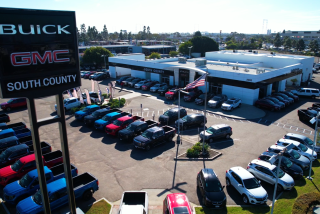MARKETING THE AMERICAN AUTO : Detroit Fails to Drive Its Point Home : Autos: While the Big Three are stressing ‘buy American,’ some consumers remain unconvinced.
- Share via
With U.S.-Japanese trade friction in the spotlight, Detroit’s Big Three auto makers are stressing a “buy American” theme, but some consumers said Sunday that it will take more than words to change their hearts and minds.
Many of the 150,000 visitors who attended the first two days of the North American International Auto Show here said American cars are just as good as their Japanese counterparts, but Detroit still suffers from its tarnished reputation of a decade ago.
“I think they have a real marketing problem,” said Darren Sleat, 23, of Riverview, Mich. “They’re too concerned with trade when they should be concentrating on making a better car.”
Despite Friday’s scathing attack on the Japanese by Chrysler Corp. Chairman Lee Iacocca, Sleat said he would not rule out buying a Japanese car.
In a speech to the Detroit Economic Club on Friday, Iacocca assailed the Japanese for practicing unfair trade and warned that America could become a Japanese colony unless steps were taken to trim the $41-billion trade gap between the two countries.
“We ship them food and chemicals and raw material--just like a colony. And they ship us value-added cars and machine tools and electronics--just like a mother country,” Iacocca said.
The Chrysler chief’s remarks won him a standing ovation from an audience of more than 2,500 people, but some auto show visitors said the verbal barrage would not change their minds.
“I come from a family of Ford owners,” Sleat said as he tried out the front seat of a 1992 Nissan 240SX. “But I wouldn’t buy (an American car) just to buy one.”
He said American car makers should learn from the Japanese and build cars that people want, rather than forcing substandard cars on an unwilling public.
“I’m a firm believer of a free-market system,” Sleat said.
General Motors Corp. Chairman Robert Stempel, who just returned from a meeting with his Japanese counterparts in Tokyo, said the Big Three auto makers are not looking for sympathy or special favors.
“We don’t have to ask the American public to prove their loyalty by buying American products,” Stempel said in remarks prepared for delivery at the Automotive News World Conference.
“We don’t want them to buy out of a sense of patriotism or pity,” he said. “We want them to buy our products because they have high quality and high value.”
But here in Detroit, where consumers love their cars and follow developments in the industry carefully, U.S. auto makers have had only limited success getting their message out.
Outside the show, a sign on a Ford pickup truck summed up the frustration many Americans feel when they talk about U.S. cars.
The sign read, “Yes, I’ve driven a Ford lately, and unless Ford comes up with a better idea soon, this will be my last.”
Jerry Dahlen, 60, of Inskter, Mich., said Detroit is still fighting to persuade Americans that today’s cars are much better than the offerings of a few years ago.
“It’s kind of a mind-set,” Dahlen said. “People kind of got disgusted in the past.”
Dahlen, who said he just bought an American car a few weeks ago, said U.S. car companies also need to improve their service and sales operations.
More than 750 cars are on display until Jan. 19 at the auto show, making it one of the largest dealer showrooms in the country.
But not everyone who attended the show came with their checkbook.
Some people, such as Harry Lee, 43, of Plymouth, Mich., who has been attending the car show annually for about 10 years, said they just came to peer into the future.
“I came just to look,” Lee said. “There seem to be more concept cars this year than before.”
More than 40 concept cars, which are not publicly available, are on display this year, up from 37 last year.






